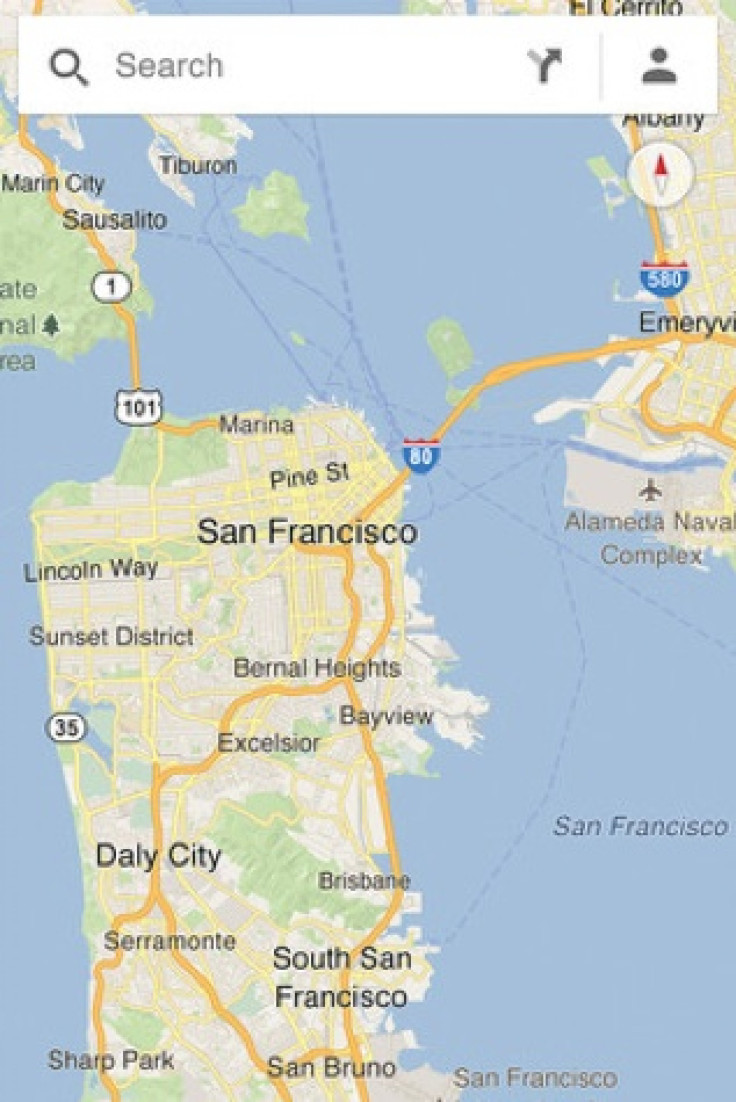Apple iOS 6 Adoption Rate Soars Following Google Maps Release

Last time, on 'It's A Maps Maps Maps World: The Apple And Google Story,' Google Maps got the boot before the release of iOS 6 so Apple could promote its own self-branded Maps application, but that didn't turn out so well for iOS users. One half-baked navigation app, an apology letter from CEO Tim Cook and few firings later, Apple finally allowed Google Maps back into the iOS ecosystem last Wednesday, this time as a downloadable native app in the App Store.
The Dec. 12 reinstatement of Google Maps on iOS has apparently been enough for some of those reticent users to finally make the upgrade to iOS 6. After achieving 10 million downloads in the first 48 hours available, MoPub, the San Francisco-based mobile ad exchange that monitors more than 1 billion ad impressions a day and supports more than a dozen ad networks and 12,000 apps, says there has been a 29 percent increase in unique iOS 6 users in the five days following Google Maps' release on iOS.
In fact, according to TechCrunch, MoPub reports a 13 percent increase in iOS 6 users from last Monday to Wednesday alone, which would mean that nearly half of the converts to iOS 6 in the past week switched the very moment Google Maps' standalone app hit the App Store.
“We observed since the launch of Google Maps for iOS 6 a 30 percent increase in unique iOS 6 users, and we think it’s related to Google Maps," MoPub CEO Jim Payne told TechCrunch's Josh Constine. "It verifies the hypothesis that people were actually holding back to upgrade until Google Maps was available.”
MoPub's report completely contradicts an earlier report from Chitika, the Westborough, Mass.-based ad network that regularly tracks iOS adoption rates based on the number of devices accessing apps on its platform. Last week, the company said there was only a 0.2 percent jump in iOS users immediately after Google Maps hit the App Store; however, Chitika is only one individual ad network, and considering that MoPub monitors and manages significantly more impressions and overall networks, MoPub's numbers can be considered much more reliable than Chitika's.
When Google finally released Google Maps on Dec. 12, it immediately soared to the top of the App Store charts, including the most-downloaded list. The application received thousands of downloads, reviews and ratings within mere hours, and most of them were overwhelmingly positive.
Even though one report, citing "Google insiders," said Apple may never approve Google's standalone Maps app may never be approved by Apple's App Store, both Apple and Google are benefiting from the reappearance of Google Maps on the iOS platform.
Google obviously wins because they're providing the app that everyone's talking about (and thanking profusely), but Apple also wins because more people are adopting its latest operating system platform -- something the company wants very much -- but the move also takes a great deal of pressure off the sturdy shoulders of Eddy Cue, the new chief in charge of the Maps at Apple. Now, Cue and his team can improve and perfect their own maps app without the full weight of the iOS community breathing down their necks.
Fixes for Apple Maps are reportedly on the menu in the upcoming iOS 6.1 update, which is said to deliver enhanced functionality and advanced integration for Apple's first-party applications including Maps, Passbook, and Safari.
iOS 6 adds more than 200 new features for iPhone, iPad and iPod Touch owners, including Apple Maps, Passbook, deep integration with Facebook, and several major enhancements to Siri, Apple's virtual personal assistant.
© Copyright IBTimes 2024. All rights reserved.












